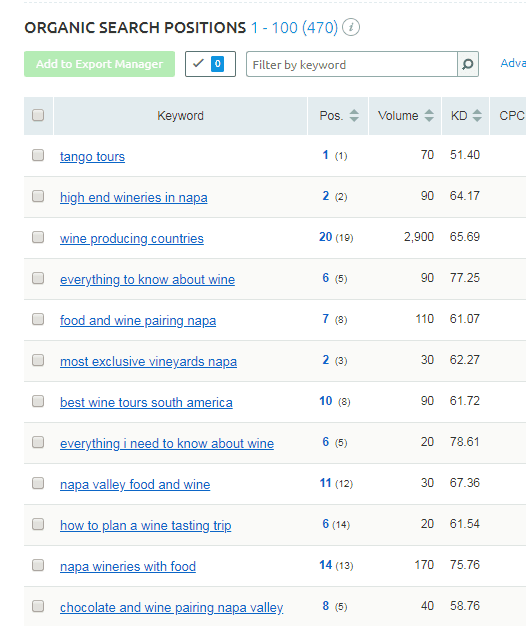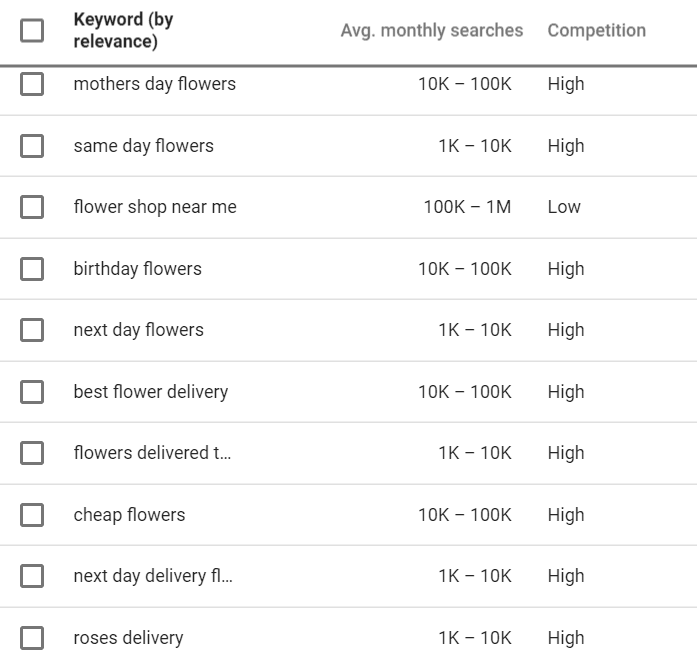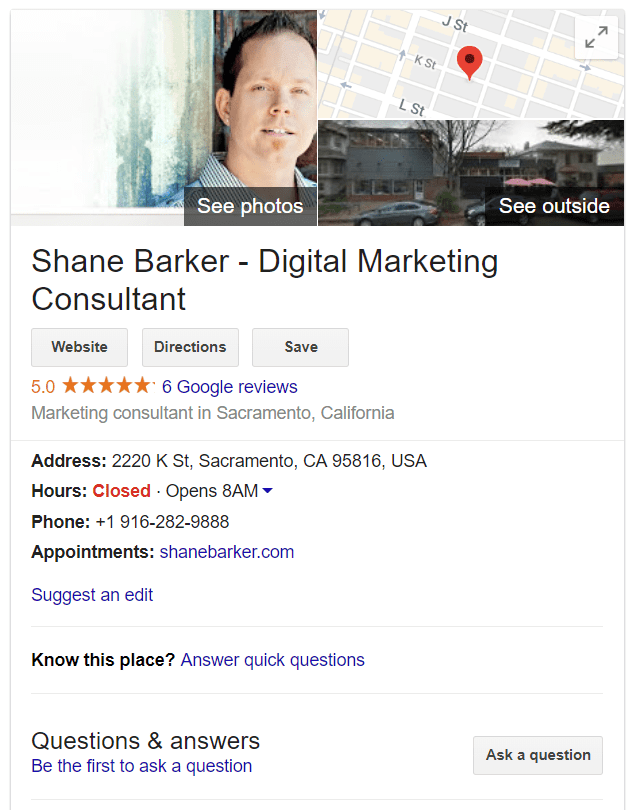
27 Sep How your keywords can rank higher on Google local search?
Many strategies can help you rank better for competitive keywords related to your product and industry. However, one often overlooked factor is local SEO.
Consumers find businesses by conducting local searches.
While local searches may yield lower search volumes, it’s more about intent and driving traffic that is ready to convert.
In fact, 76 percent of people who look for a nearby business on their smartphones, visit them within a day’s time and 28 percent of these searches end in a purchase.
So how do you find and use keywords to help increase your local search rankings? Read on to find out.
Local Keyword Research
You first need to know which search queries are helping people find your business. Optimizing your website will be a much easier task once you know the keywords you’re ranking for. You can then focus your efforts on other relevant keywords.
For instance, if your bakery shop is already ranking well for [bakery shop Lexington], you can get to work on other search terms. You can divert your attention to ranking for searches like [Lexington bakery] or [best bakery in Lexington]. By improving your search results for other related phrases as well, you increase your reach to more potential customers.
What to Research
As you go about your local keyword research, you can use tools like Google’s Keyword Planner, SEMrush, etc. to source search volume data for your location.
- Don’t restrict yourself to only your location.
- Expand the search to include nearby, distinct locations.
For example, you can expand your search from [most exclusive vineyards napa] to include [food and wine pairing napa] and [best wine tours South America], too.

Such search volume data for specific areas may not seem like much. But cumulatively, such data can deliver a reasonable amount of traffic with high purchase intent.
Just don’t stray too far from your actual location.
Additionally, you should research what steps your competitors are taking to rank better for local searches. Input the URL of their contact page into Google’s Keyword Planner.
This way you can source the keywords Google is most likely to associate with their business. Work on targeting these keywords to gain a competitive advantage.
Picking Local Keywords to Use
Google has been working toward producing more localized search results.
A few years ago, search engines would yield the same results for people running the same search in Arizona as they would in California.
Since then, Google has taken a more local-first approach when ranking search results. It favors businesses with a local listing in proximity to the person conducting the search.
It’s not just on the basis of location that they’re tailoring their search results. They’re also accounting for your personal choices and preferences.
This personalization has two key implications for your local SEO efforts.
1. Target Broad & Competitive Search Terms
Previously, it would have been impossible for local businesses to feature for search queries like “bakery” or “florist.”
But with the Possum update, Google’s algorithm started giving a lot of emphasis to user location for local searches.
Each update has only refined the process. And with Google’s emphasis on local, you can now rank for such more competitive and generic phrases.
2. Face More Competition for Fewer Spots
On Google, local business face a high level of competition for less space.
It’s called the Local 3-pack.
And it looks like this on a search engine results page (SERP):

Getting your local SEO game on point is an absolute priority if you want to nab one of those top three spots.
How to Pick the Right Local Keywords
Now that we’ve covered the significance of keywords and the role of search localization, how do you pick the right keywords?
Here’s a three-step approach that can help you with your local keyword research.
1. Leverage Industry Keywords
Your objective is to identify commonly used phrases that people will use to search for your business.
The first step is identifying words or phrases people use when describing your products or services.
Put yourself in their shoes. Try to think about what they would type in search engines to find a business like yours.
Brainstorm and compile a list of local keywords and phrases that are relevant to your industry.
This list forms the basic foundation of your main keyword research.
For instance, as a bakery, your list may contain terms like:
- Baguettes.
- Wedding cakes.
- Pastries.
- Desserts.
2. Use Keyword Modifiers
The next step to find the right local keywords is to come up with modifiers that people will use in their searches.
Modifiers include words that can be used to describe an event, a quality, a type of product, or other associable words.
Examples include words like:
- Weddings.
- Best.
- Lilies.
- One-day delivery.
For a florist shop, that means phrases such as funeral wreaths, wedding bouquets, exotic flowers, best florists, etc.

3. Research Local Keywords
Finally, you want to identify keywords for your local SEO that pertain to your geographic location.
Consider the various locations and areas you service and where your customers are from.
If you have a delivery service, then include those area names, counties, cities, etc. in your blog posts and site content.
People tend to look for businesses near them first.
Account for where your target audience lives or works when picking these local keywords.
For instance, the florist may target keywords like:
- Best florist in Durham.
- Exotic flower shops in RDU area.
- Florist near Hillsboro road, Durham.
How to Get Ahead in the Local SEO Game
The world of local SEO is forever changing, but there are a few proven ways to stay ahead of the pack and secure a top rank.
Here are a few tips to get ahead.
1. Google My Business Page
It’s impossible to stress enough the importance of having a Google My Business page.
More so considering My Business signals, alone, account for 19 percent of local search rankings.

2. Content with Local Focus
Long-form, city-based, and informative content are an absolute must.
Content could take the form of local promotions, news, and industry trends depending on your industry and niche.
The important thing is writing helpful content that locals are seeking.
3. Citations
A key component of any SEO strategy is backlinks.
They add legitimacy to your local business as people cite you in their content.
Local directories such as Yelp, Google Listings, or even the local chamber of commerce can help build a strong link profile.
4. Reviews
88 percent of people are likely to trust online reviews just as much they would trust personal recommendations from peers.
While you want more positive than negative reviews, the difficulty lies in sourcing reviews.
Encourage your customers to share their experiences with your business.
5. Result Monitoring
As with any marketing strategy, monitoring your results is a key part of the process.
Without monitoring your results, you won’t know if any of your efforts are paying off.
Track whether the keywords you’re targeting have improved your local rankings.
Many SEO tools will let you track “just” local keywords.
![]()
Conclusion
Now you have a comprehensive guide that will help you with your local keyword strategy.
Keep your local keywords in mind when working on your on-page optimization and link building activities. They’ll go a long way toward helping you appear in Google’s local pack.
More Local SEO Resources:
- What Is a Local Backlink & How to Find Them
- Local SEO in 2018: 12 Tips to Build Local Engagement
- How to Target Multiple Cities Without Hurting Your SEO
Image Credits
All screenshots taken by author, July 2018
Source : https://www.searchenginejournal.com/rank-higher-local-keywords/262899/
